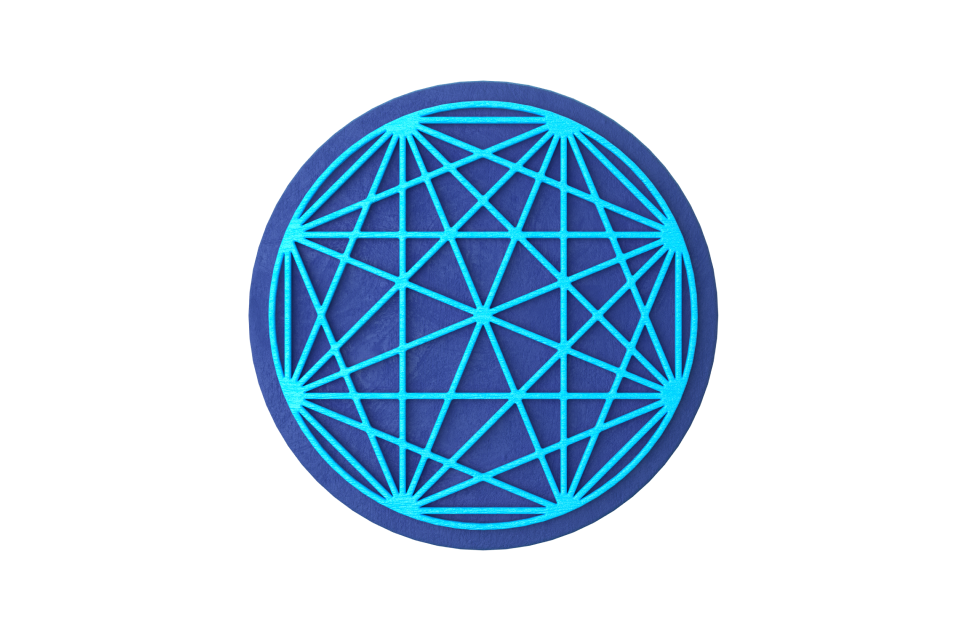Diagnose and leverage system-wide change
Pre-Requisite : Group Facilitation Methods or GFM Online *
*This 3 day course is a part of the Facilitative Leadership Program and the Advanced Facilitator Program.
Manage complexity and lead the process of transformation. Analyze drivers of change and plot a course through the natural evolution of an organization using key leverage points that allow the change to occur rapidly and sustainably.
Organizational Transformation creates willing participants and partners of change empowering people to take charge of the transformation rather than reacting.
This course is part of the Facilitative Leadership Program and shows how to map out the organizational journey so that everyone can participate in the transformation.
As with all ICAA training, this course is delivered by professional facilitators who actually demonstrate the materials, lead reflections to learn collaboratively, provide real life examples from experience, and set you up to practice with others using a suite of tools. Sometimes you might work on interesting case studies. Sometimes you work on your own case. The high quality manual is full of useful materials: underlying theory, short readings, step-by-step instructions, templates, and worksheets. As a result you will have the confidence to use your new understandings immediately with clients of your own.
Both the “live online” and “in-person” courses are usually scheduled from 9 am – 5 pm in the time zone of the location mentioned. Please check the timing carefully when registering.
You will need to choose your preferred type of setting or mode of delivery. The descriptions of the differences between live online (LO), in-person (IP), and self-directed (SD) are explained in an expandable section near the bottom of this web page.
Courses are held from 9 am – 5 pm in the time zone of the location mentioned.
Price is in CAD$1,745.00. Applicable tax is extra.
Benefits
Learn not just the theory but the actual practice of transformation using highly participatory processes that guide the way.
Learn processes to effect transformational change in your organization.
- Understand trends, pressures and drivers of change.
- See clearly through the complexity of whole systems.
- Analyze and diagnose social and organizational dynamics.
Determine how to guide necessary changes
- Plot innovative and creative pathways.
- Generate change scenarios and breakthrough strategies.
- Identify concrete steps to major shifts.
- Build solid consensus and commitment to change.
- Expand your own leadership capacities.
- Motivate the entire organization to learn and change.
- Reinforce values and behavioural changes.
Day One
- The dynamics and drivers of change
- Systems analysis with Social Process triangles
- Determining external trends driving organizational change
- Wave trends analysis
Day Two
- Mapping an organization’s journey
- The Organizational Journey Chart
- Leverage points for strategic change
- Organizational Dynamics
Day Three
- Contradiction: the doorway to transformation
- Contradictional analysis leading to strategic change
- The link between values, images in personal behavioural change
- Imaginal education theory and practice.
- Consultant who guide many organizations through major changes.
- Directors anticipating or going through an organizational transition.
- Managers tasked with a leadership role in transformation.
- Government officials needing to focus strategic change and developmental initiatives.
- Facilitators looking for powerful methods and mental models for development, change and transformation projects.
This course includes sophisticated methods and mental models proven effective from successful use in corporations and regions over decades.
The Social Process systems thinking illuminates key drivers in society impacting your organization.
The Wave analysis uncovers important trends that must be considered.
The Map of the Organizational Journey plots a course of transformation from current reality to the desired future in eight key areas.
The Dynamics Screen uses nine leverage points to focus approaches to change.
Contradictional Thinking turns irritants, complaints and roadblocks into strategic issues that can be addressed creatively and positively.
Culture Change reinforces image, values and behaviour needed to support any serious change.
You can choose to take this course In Person (IP) or Live Online (LO). The codes IP or LO show in the course name when you register.
In Person (IP) classes are instructor-led events occurring in the same room on specific dates with one group of people. You have a deep level of dialogue with face-to-face practice in breakout groups, get paper manuals and books, use pen-and-paper worksheets and exercises and enjoy breaks and lunches together. Instructors demonstrate methods using flipcharts, index cards, marker pens and wall chart visuals . The experience for participants can be similar to working with a client in a live setting. There is no practice of online tools.
Live Online (LO) classes are instructor-led events occurring at the same time with the same people, using our learning management system and online platforms, primarily Zoom and Mural. The course covers the same material as an IP course but uses online tools with plenty of small group exercises. Manuals and books are downloadable as PDFs that can be printed out if you want. There are no programs or apps to download. Participants need a computer with a large screen (a cell phone won't work well), a high speed internet connection, and earphones or earbuds. We do not actively “teach” online tools, but participants get so see and experience the ones we use during the course.
Self Directed (SD) courses are sets of “modules” like mini-courses, each containing short videos, readings, quizzes and games and assignments. You take them at your own speed any time from anywhere. You get written feedback from instructors on your assignments. The modules are assembled to resemble the in-person and live online course content. The disadvantage is the absence of collegial interaction, teamwork, and dialogue, which is a key component of facilitation. Participant manuals and materials are downloadable in PDF form.
All course graduates are encouraged to follow-up with some 1:1 coaching and join communities of practice we have set up to help extend and reinforce learning.


